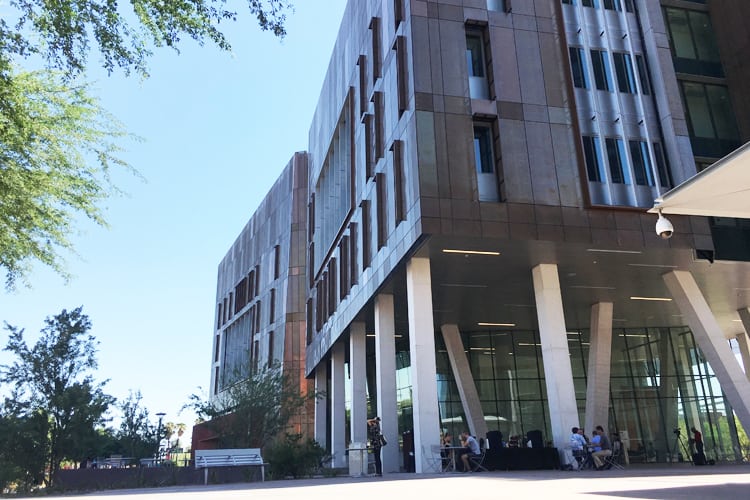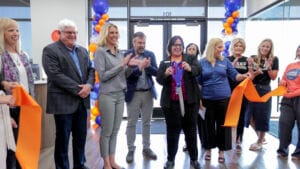Scientists intend to make Arizona a national hub for research on Alzheimer’s, Parkinson’s and other degenerative brain diseases. Experts say the state has the second-highest growth rate in the nation for Alzheimer’s disease.
The ASU-Banner Neurodegenerative Disease Research Center, part of Arizona State University’s Biodesign Institute, officially opened its doors Monday with plans to research early detection biomarkers and find potential treatments for diseases like Alzheimer’s and Parkinson’s.
Joshua LaBaer, executive director of the Biodesign Institute, said its goal goes to the impact of science on people’s lives.
“We’re here to actually solve problems and solve problems in a way that will impact society,” LaBaer said. “A big part of what we do is taking our discoveries and walking them into society, where they can make a difference.”
Nearly 14 million Americans are expected to be living with Alzheimer’s within three decades, according to the Alzheimer’s Association.
“While the trajectory is alarming, we are fortunate to have research institutions, like ASU and Banner Alzheimer’s Institute, right in our backyard – doing cutting edge research in the field of dementia science,” said Katie Skvarce, a spokeswoman for the association
The new center will bring together researchers to from around the world, LaBaer said.
Teresa Webb, who was 55 when she was diagnosed with a frontotemporal dementia, said doctors gave her a dire prognosis.
“For two years I waited. I sat and I waited to die,” she said. “After sitting in a dark space for about two years, I decided that’s enough. I’ve never been one to sit on my laurels very long.”
She founded a nonprofit resource group and eight years after her diagnosis, she advocates for people living with dementia and works to insure their inclusion in research. Webb also takes Pilates classes several times a week.
Webb said she would like to see the ASU-Banner center conduct research on improving quality of life and care.
“I would hope eventually that their research won’t all be clinical trials,” she said. “What I would like to see is more research in the non-pharmaceutical arena.”
She also emphasized the unmatched ability people living with dementia have to inform research on the diseases they have.
“I think it is imperative that a person living with dementia be included in the research process,” Webb said.
Researchers in the ASU-Banner Neurodegenerative Disease Research Center began work in July, ahead of this week’s grand opening. Scientists are working with animal models of dementia-related diseases, the pathology of diseases and data analysis of patient information to identify patterns.
The center also will continue industry research on biomarkers to identify ways to predict and prevent Alzheimer’s and similar diseases.
Eric Reiman, executive director of Banner Alzheimer’s Institute, who is helping to establish the center, said it will work with other organizations in the state and internationally.
“We would like to create a destination center for the discovery of a broader portfolio of promising ways to treat and indeed prevent Alzheimer’s disease,” Reiman said. “We want to leverage strengths that we will generate here with complementary resources throughout the state to have the most impactful difference.”




